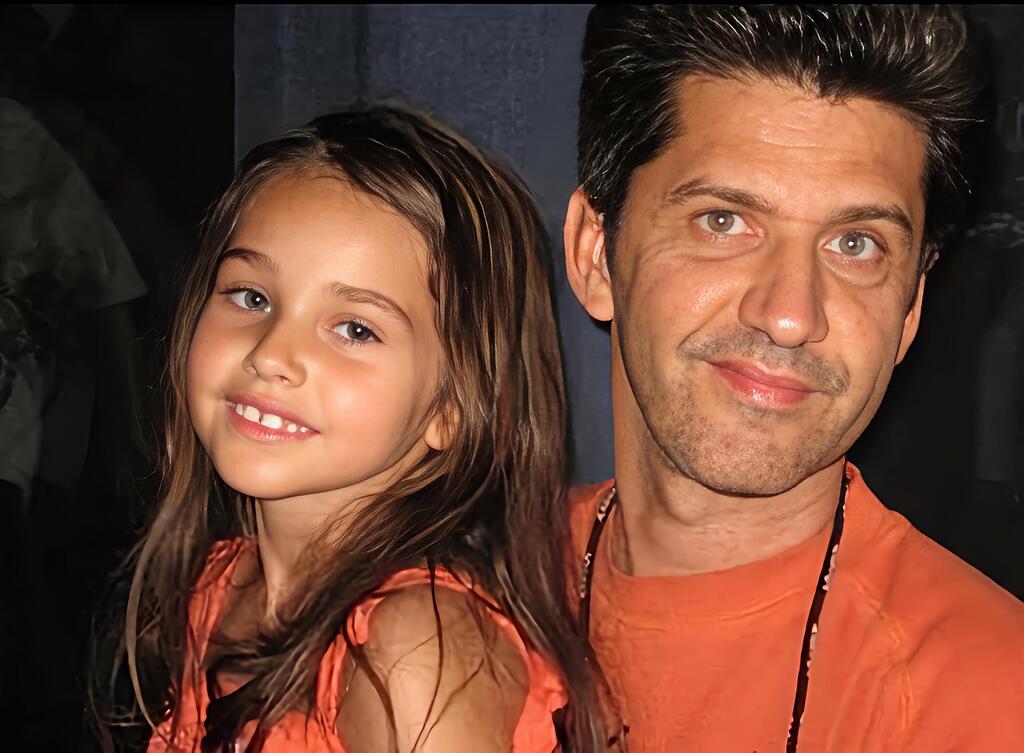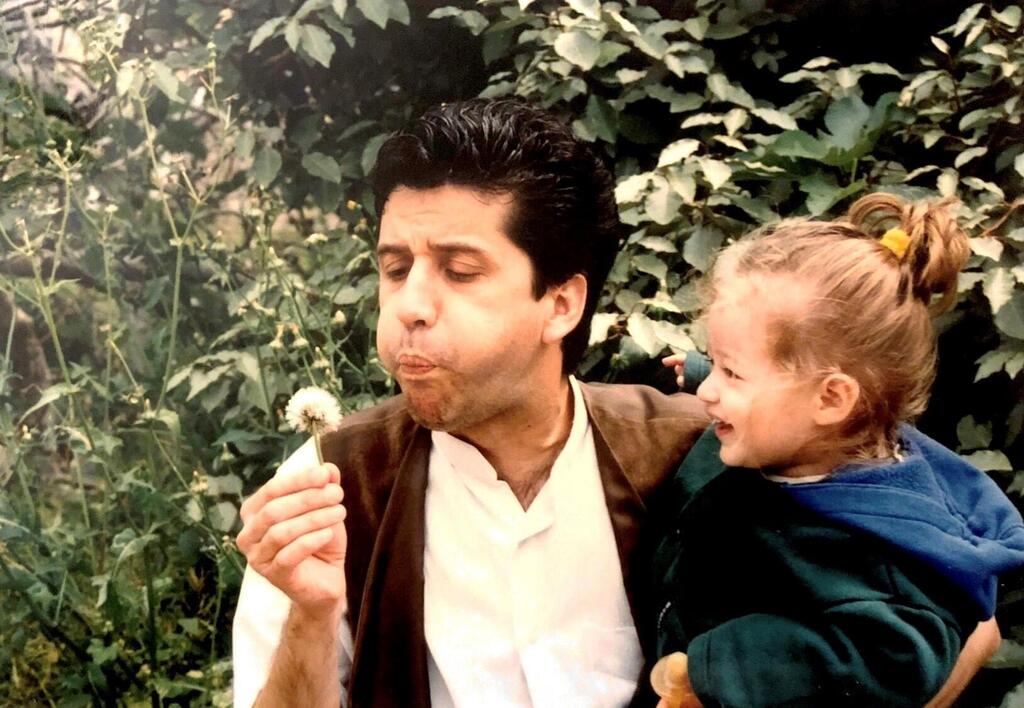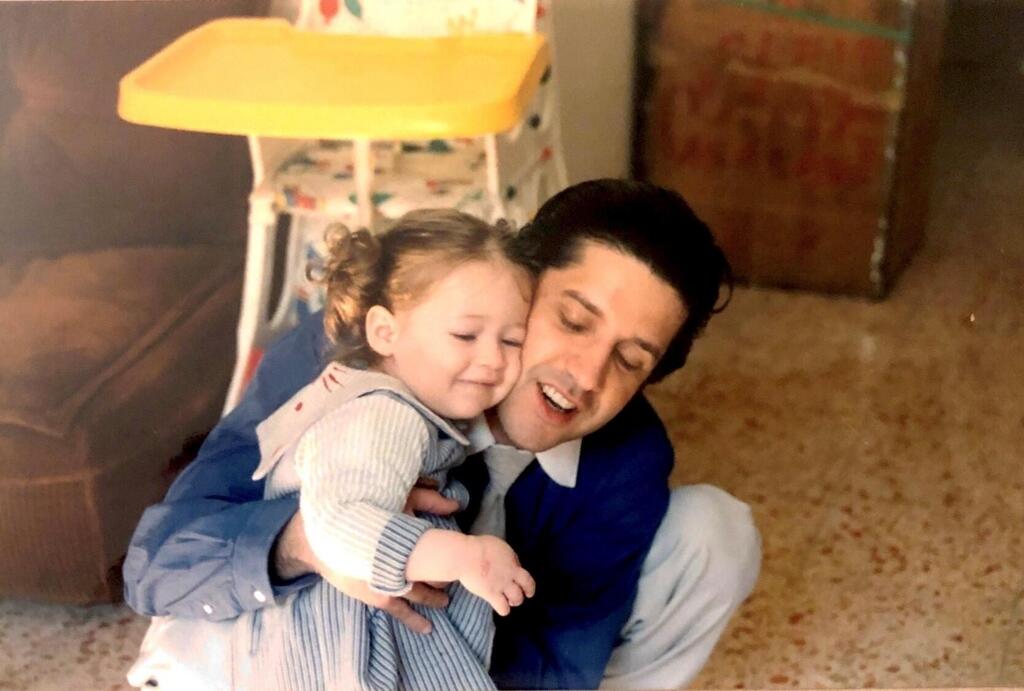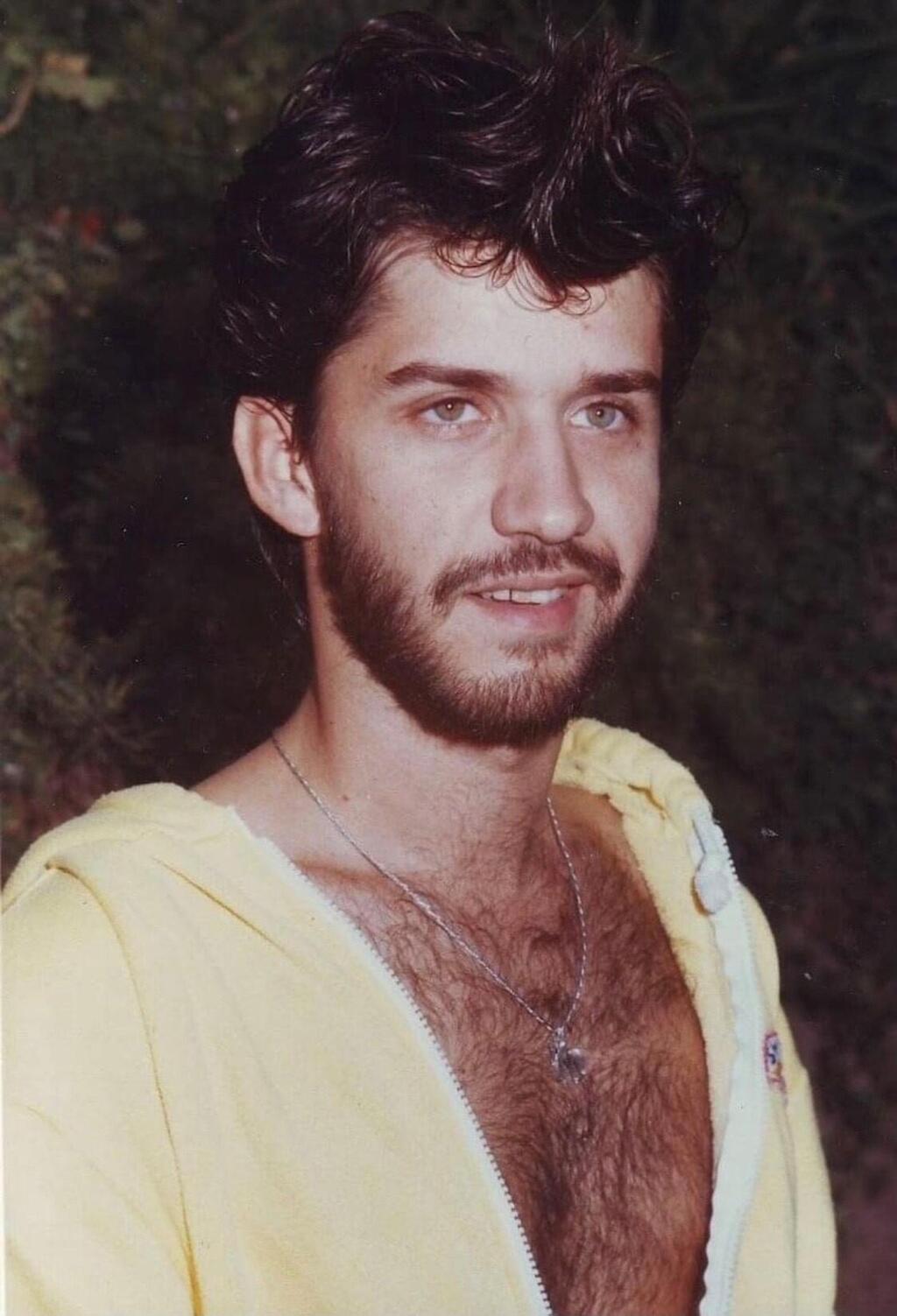Getting your Trinity Audio player ready...
No matter my achievements, the high grades I earn or the praise I receive, deep down, I'm still that girl who wasn't a good enough reason for her father to stay alive.
Read more:
My father, Uri Mishol, took his own life when I was ten, after battling deep depression. My parents had divorced, and he moved to a small apartment in Rishon Lezion. At that time, I was eight, and my older sister, Danielle, was twelve, shortly after her bat mitzvah.
I cherished sleeping over at Dad's place. We'd sit on the sofa bed and watch our favorite movie, Saint Clara. I remember our trips to the nearby park, where he'd teach me to ride a bike. I'd fall repeatedly, urging him not to let go, afraid of being alone on the bike. Dad would chase after me across the park, dripping with sweat, ensuring I wouldn’t fall. Eventually, I told him to release, and I managed to ride on my own. We'd then go to eat. When he'd visit us in Holon, we'd head to the city mall, dining at a restaurant known for its face-sized schnitzel and fluffy potato mash
In my father's eyes, I was his most wonderful creation. I didn't need to do anything; my mere existence was enough. My dad was the epitome of fatherhood. He was the dad that every teacher at school knew, students were intimidated by, and all parents loved. He was the most tender-hearted individual, always ensuring my sister Danielle and I were safe and protected.
Deep within the darkness
My father and I always shared a close bond; words weren't necessary – a simple glance exchanged and we understood each other completely. Despite my young age, I began to notice his gradual decline. It started with little forgetful moments, like the time he left his work laptop on the car roof and drove away. Throughout the drive, we remained silent, as I didn't want to embarrass him (the laptop was gone for good).
I remember he would often scratch his head, claiming he had sores. I'd look closely again and again, but I couldn't see anything. Still, I played along just to spare him pain. I realized something was hurting him, but it wasn't an external pain; there was no physical symptom to point to as the source of his distress. It felt as though my father's heart was broken, and apparently, there's no ultrasound or test for a broken heart.
"From the vibrant man he once was, he turned gray. His smile became a rarity, and the passion and hunger for life were replaced by sad, tired and embarrassed eyes. I mostly remember a father fighting for the image that had faded, struggling with his situation and too ashamed to seek help. He constantly felt inadequate, ashamed of his condition and embarrassed to be on the side asking for help"
My father's condition worsened over time. He worked as a marketing and sales manager at a travel agency and was the most vibrant person I've ever known in my life. He had an entire drawer filled with ties of various colors and quirky designs. At work, they'd call him Bouncy, the kind of guy who enters a room and demands attention. Ironically, this beacon of light found himself deep in darkness.
From the vibrant man he once was, he turned gray. His smile became a rarity, and the passion and hunger for life were replaced by sad, tired and embarrassed eyes. I mostly remember a father fighting for the image that had faded, struggling with his situation and too ashamed to seek help. He constantly felt inadequate, ashamed of his condition and embarrassed to be on the side asking for help.
I recall watching all of this from the sidelines, realizing I was in a battle. I didn't know against whom, but it threatened to take my father away. My father and I had difficult conversations, during which he would say he couldn't go on, that he was giving up.
The only person I confided in was my teacher at that time, Mali. I told her my father was sad and I didn't know how to cheer him up. We'd sit together after school hours and draw pictures for him; sometimes a flower, sometimes a house with a family, but mostly smiling faces. On one of the letters, I wrote, "Dad, you used to be happy. Can you be happy again?" With a child's innocence, I thought happiness was a switch you could turn on and off at will.
"Many people tried to help my father in their own way. He was diagnosed with clinical depression but refused treatment. His shame was overwhelming; he kept saying he didn't want people to think he was crazy"
My father barely smiled, only when I really made him laugh. So, I tried to be silly. I also realized how deeply he loved me, so I'd frequently argue with the girls just so he'd get involved in my troubles. For a while, my strategy worked until things got really dark for him. Many people tried to help my father in their own way. He was diagnosed with clinical depression but refused treatment. His shame was overwhelming; he kept saying he didn't want people to think he was crazy.
I never cried over him in public
Dad took his own life on the eve of Shavuot. I didn't expect that on my day off, my alarm would be replaced by my mother's screams. Danielle and I jumped out of bed, immediately asking if something happened to our grandparents. She said it was about Dad, unable to speak further due to her overwhelming tears. My heart sank. We thought Dad might have been hospitalized following a car accident.
"I never cried over him in public, never asked questions and mostly, I felt ashamed. I knew everyone was deeply embarrassed by what Dad did, because what did that say about us as a family? So, I stayed silent. As I grew older, I realized that shame is the silent killer; it's the thing we don't talk about, and it becomes so much bigger when left unaddressed"
Then Mom said that Dad had taken his own life and hugged us tightly. Danielle and Mom were crying, while I remained silent. I thought it was some sick joke, half expecting to see some celebrity pop out from behind the corner with a camera. But as time passed, I realized Dad wasn't coming back. Worst of all, we began to erase him. From a father present in every moment of my life, to a father we no longer spoke about at home.
I never cried over him in public, never asked questions and mostly, I felt ashamed. I knew everyone was deeply embarrassed by what Dad did, because what did that say about us as a family? So, I stayed silent. As I grew older, I realized that shame is the silent killer; it's the thing we don't talk about, and it becomes so much bigger when left unaddressed.
Today, I'm part of Path to Life, a suicide prevention NGO, and volunteer to deliver lectures to raise awareness for suicide prevention. I share my story because I know my father could have been saved. I understand the importance of raising awareness, recognizing the signs in someone at risk, asking the right questions and not being afraid to seek help—it's the formula to save lives.
I aim to reach those families that still feel the weight of shame, to help them breathe easier, and to let them know it's both possible and necessary to ask for help.
As a family, we've been through and continue to undergo a process. Nowadays, we talk about him at home, reminisce about memories and also discuss his suicide openly. I post content on social media, sharing even the parts people tend to hide or gloss over because I know what it's like to be the only girl whose father took his own life.





